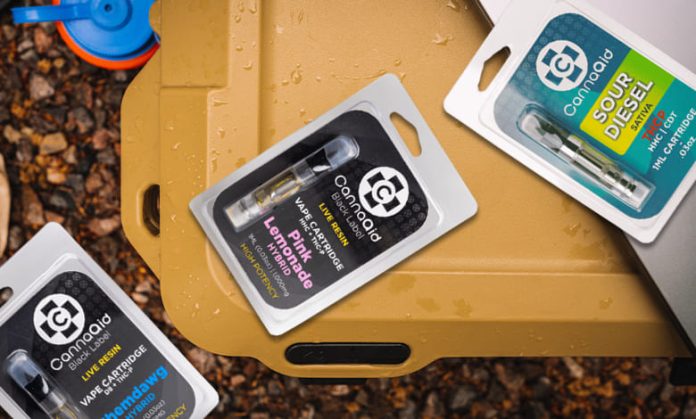What Is THCP?
THC-P, another psychoactive hemp derivative, is now available. THC-P is a unique product that stands out from the rest and makes it an important addition to the bustling cannabis industry. THC -P vape cartridges and THC -O disposables are some of these products. Soon, THC -P gummies will be available. The most interesting part is that THCP may be 30x stronger than regular Delta 9 THC. Yes, 30x more powerful than regular THC. Binoid’s original line of vape cartridges containing six different terpene flavors is the first THCP product.
Cannabinoids are responsible for the ECS function. These compounds can have a tremendous value in terms of how they affect the feelings. In addition to their high, cannabinoids have other properties that make them useful.
The same team that discovered THC–P did some testing on it to determine its capabilities beyond the fact that it can produce a strong psychoactive response.
These preliminary results are shown in the data linked above. THC-P products have similar effects to delta 9 THC but may be stronger. It has been shown to have unique effects that affect pain levels, nerve system function, and appetite. These properties are long associated with Delta-9.
It is important to note that THC-P products like vapes can produce more powerful psychoactive effects than delta 9 THC. Anyone who attempts to use it must be aware and cautious about its potential for intoxication. Tolerating any psychoactive compound such as cannabinoids requires that users start with small amounts and increase their intake over time. Otherwise, they may feel too high.
What is a THCP-cartridge?
To put it simply, THCP cartridges amplify psychedelic effects and increase potency. Most users can be elated by how THCP resets their tolerance to other cannabinoids. The effects can last for days and vary from person to person.
What is THCP and How Does It Make You Different?
As with any THC cannabinoid, tetrahydrocannabinol’s most notable characteristic is its psychoactive nature, as this is the aspect that attracts the most attention. What is the psychoactive aspect of THC-P Products’ THC-P Products, you ask? The CB1 receptor is 30x more sensitive to it than to delta-9-tetrahydrocannabinol (delta 9 THC).
Cannabinoid receptors CB1 are found in the nervous system. The endocannabinoid systems, which are widespread body systems that maintain homeostasis, include cannabinoid receptors. Each cannabinoid is sent to specific receptors throughout the body. These receptors are responsible for regulating specific actions in the body.
There are two types of cannabinoid receptors:
- Nervous system (CB1)
- CB2 (immune system and digestive system)
To produce psychoactive effects, intoxicating cannabinoids such as delta 8, delta 9 and THC-P bind to CB1 receptors. The unique ability of tetrahydrocannabiphorol to bind to CB1 receptors contributes to its psychoactivity.
Is THC-P Legal?
As of the writing of this article, there was no legislation that specifically addressed THC-P. It will continue to have a federally legal status because it is protected by the 2018 Farm Bill, which allows all hemp derivatives (except for delta 9 THC) to be legal. The compound may be banned by individual states, just as they do with other cannabinoids.
THC-P products are currently made from hemp. This complicates matters. Federal law says that all hemp derivatives, except delta 9 THC, are legal. No literature distinguishes between synthesized and naturally occurring compounds.
There are currently new THC-p products being released every day. This means that you can find out more about the “one-of a kind high” it could offer. The 2018 Farm Bill is responsible for all of this. Learn more about the THCP at CannaAid.
What is THCP? Know before you try
There are about 150 cannabinoids in hemp plants. Some get more attention than others. Cannabidiol CBD, as well as THC (which is more obscure but still important), is without a doubt the star. The hemp market has seen a rise in interest and changes in law, which has led to cannabis analysis becoming more sophisticated.
Scientists are constantly discovering new compounds in hemp plants that have unique properties. These include delta 8 THC products, delta 10 THC Products, THC-O Acetate products, THCV and even HHC products.
Scientists have known about many of the cannabinoids in circulation over recent years for decades. Cannabidiol, cannabinol and cannabigerol have all been studied and analyzed before the advent of cannabinoid products.
Tetrahydrocannabinol, on the other hand, is actually an extremely new discovery. It wasn’t discovered until 2019, when researchers from Italy discovered it while studying hemp. To be exact, the December 30th 2019 release of the initial THC-P study was its publication.
Tetrahydrocannabiphorol’s discovery was an accident, and the result of the Italian research team applying mass-spectrometry and liquid chromatography techniques to a sample of hemp. These techniques can be used to biologically analyze individual compounds and allow for more detailed analysis. This allows cannabinoids to be isolated so that individual properties and characteristics can easily be discovered.
After these steps were applied to the sample of cannabis, THC-P was discovered. The team decided to study it further to determine its properties. THC-P, a naturally occurring cannabis cannabinoid, is what you didn’t know about. It is not synthesized like THC-O and it is completely natural.
Disclaimer: This article contains sponsored marketing content. It is intended for promotional purposes and should not be considered as an endorsement or recommendation by our website. Readers are encouraged to conduct their own research and exercise their own judgment before making any decisions based on the information provided in this article.



































